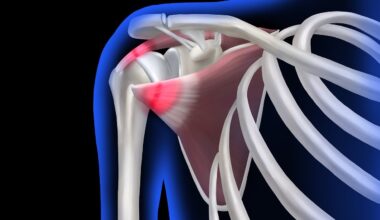The Science Behind Professional Weight Loss Coaching
Weight loss is increasingly seen not just as a matter of diet and exercise, but also as a psychological and behavioral transformation. Professional weight loss coaching offers a structured approach to understanding these dynamics. Coaches provide knowledge and accountability, which often leads to effective changes in habits and attitudes. Their guidance helps individuals set realistic goals while offering emotional support and motivation. Research shows that 90% of individuals who work with a coach succeed in making sustained changes. Coaches help clients identify triggers that lead to unhealthy eating and behavior patterns. This process can involve tools such as food diaries, motivational interviewing, and self-monitoring techniques. Furthermore, professional coaching often incorporates an individualized approach to nutrition and fitness. This personalized attention addresses various factors, including lifestyle, preferences, and any underlying medical conditions. Ultimately, coaches empower clients to take control, providing them with the knowledge and tools needed to achieve long-term weight management goals. By combining emotional support with practical strategies, coaching transcends the limitations of traditional weight loss methods, making it a popular choice for many seeking lasting success across diverse populations.
The Role of Accountability in Coaching
Accountability is a cornerstone of professional weight loss coaching, serving as a driving force for many individuals. When clients know they are scheduled to meet with a coach, it encourages them to adhere to their plans and commitments. This external accountability can lead to more diligent food logging, exercise routines, and mindful eating practices. Unlike self-guided programs, which may lack the element of personal responsibility, coaching provides a platform for regular check-ins, progress evaluations, and adjustment of strategies as needed. The relationship between coach and client is crucial; a positive rapport enhances motivation and adheres to set goals. Clients often report feeling more committed and engaged as a result of their coach’s support. Moreover, the coach’s non-judgmental feedback lends a safe space for discussing difficulties and celebrating successes. True accountability extends beyond just reporting results; it encompasses learning from setbacks and adapting strategies effectively. This holistic approach allows clients to view their weight-loss journey as a learning experience. Over time, they gain resilience and the ability to navigate challenges independently, paving the way for sustainable lifestyle changes that extend beyond the coaching relationship.
In professional weight loss coaching, goal setting is an integral component that determines success. Coaches assist clients in establishing SMART goals—Specific, Measurable, Achievable, Relevant, and Time-bound. By creating clear objectives, clients can visualize their progress and maintain focus. Setting realistic goals promotes confidence and combats feelings of overwhelm that often accompany weight loss efforts. Coaches help to break down larger goals into achievable milestones, enabling clients to celebrate small victories along the way. For instance, clients might begin with a goal of losing 1 pound weekly or incorporating 30 minutes of physical activity per day. This gradual approach fosters long-term changes and helps clients develop a positive relationship with food and exercise. In addition, accountability for these targets reinforces commitment. Regular check-ins with a coach where progress is reviewed can provide both encouragement and challenge when necessary. Coaches may also introduce behavior modification strategies to replace unhealthy habits with healthier ones, gradually shifting mindsets. Clients learn to value behavioral changes over weight-centered outcomes, which can significantly alter their overall experience. With each small success, clients could build the confidence needed for further achievements, forming a foundation for lifelong maintenance.
Behavior Change Techniques in Coaching
Behavior change techniques employed by professional coaches are vital in fostering lasting weight management. These techniques focus on understanding the mindset behind eating choices and personal habits. Effective coaching often integrates cognitive-behavioral strategies that help clients challenge their thought patterns related to food, self-image, and routines. By identifying negative self-talk or misguided beliefs, coaches guide clients on how to develop healthier perceptions. Techniques such as stimulus control educate clients on managing environmental triggers that may prompt unhealthy eating. Coaches may recommend replacing junk food with healthier snacks in easy-to-reach spaces. Furthermore, motivational interviewing is a popular technique utilized to boost intrinsic motivation. During sessions, coaches explore the clients’ personal reasons for wanting to lose weight, which enhances personal investment in achieving their goals. Education on nutrition often accompanies these behavioral strategies. Understanding how to read nutrition labels or the benefits of whole foods empowers clients to make informed choices. Coaches embrace a holistic approach, positively reinforcing healthy behaviors while addressing setbacks. This comprehensive methodology ensures that clients do not merely seek temporary solutions but instead cultivate an empowered mindset for ongoing success alongside their wellness journey.
Nutrition education is a crucial aspect of professional weight loss coaching, as it structures the foundation for informed dietary decision-making. Clients often enter coaching with misconceptions or limited knowledge about their nutritional needs. Coaches help them to navigate this landscape by providing evidence-based information on macronutrients and micronutrients, meal planning, and portion control. Emphasis is placed on understanding how foods fuel the body and the impact of various eating patterns on weight management. Coaches might introduce clients to dietary approaches, such as intuitive eating or balanced macronutrient distribution, that align with their values and preferences. This individualized education not only focuses on healthy eating but also empowers clients to enjoy food without guilt. By incorporating mindful eating practices, clients can learn to recognize hunger and fullness cues, creating a more harmonious relationship with food. Fostering this understanding helps to reduce emotional eating and promotes sustainable habits. Nutrition education also extends beyond what to eat; it includes strategies for grocery shopping, cooking skills, and dining out choices. Clients develop practical skills that equip them to face real-world challenges effectively, ultimately encouraging lifelong healthy habits.
Psychological Support in Weight Loss
Psychological support provided through professional weight loss coaching is invaluable in addressing underlying emotional factors linked to weight. Many individuals struggle with emotional eating, food obsession, or body image issues, which often hinder progress. Coaches trained in psychological aspects help clients unpack these issues and provide coping strategies to overcome them. By creating a safe and trusting environment, clients feel comfortable sharing their vulnerabilities. Coaches utilize active listening, empathy, and reflection to guide clients through challenging conversations about their relationship with food. The support extends beyond mere accountability; it includes recognizing the psychological triggers of overeating or unhealthy behaviors. Coaches may introduce stress-management techniques and mindfulness practices to help clients develop healthier responses to emotional triggers. As clients progress in their self-awareness, they learn to replace unhealthy habits with positive coping mechanisms. This psychological support fosters resilience, enabling clients to work through setbacks without losing sight of their goals. Ultimately, clients gain the emotional tools necessary to maintain their weight loss long after the coaching sessions end. This comprehensive approach highlights the importance of mental wellness in achieving sustainable weight management.
In conclusion, professional weight loss coaching is a multifaceted approach that encompasses accountability, personalized nutrition education, behavior change strategies, and psychological support. Coaches play a critical role in facilitating lifestyle changes by working collaboratively with clients. The science behind coaching emphasizes that sustainable weight loss goes beyond just physical changes; it involves emotional and cognitive transformations. With a focus on holistic wellness, clients are equipped to understand their relationship with food and develop healthier behaviors. Furthermore, the strong support system fosters motivation and resilience, helping individuals navigate challenges effectively. Research consistently shows that clients who engage with professional coaches achieve greater success than those who attempt weight loss independently. The accountability and tailored strategies provide clients with the confidence to pursue their goals vigorously. As awareness of the importance of professional coaching grows, more individuals are discovering its profound benefits. For those contemplating a weight loss journey, engaging a professional coach can be a pivotal step toward achieving their long-term goals. Individuals are encouraged to consider this valuable resource, as it often leads to improved physical health, psychological well-being, and an enhanced quality of life.
In summary, coaching can be a transformative approach to weight loss and management, ensuring a supportive pathway towards a healthier lifestyle.





